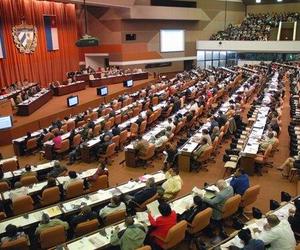Cuba set to approve new foreign investment law
- Submitted by: lena campos
- Politics and Government
- 03 / 19 / 2014

Cuba's National Assembly will meet on March 29 to debate and approve a new foreign investment law that the government hopes will lure overseas capital and increase growth, state-run media outlets reported on Wednesday.
The ruling Communist Party passed a more than 300-point plan to revamp the economy in 2011, which includes moving 20 percent of the state labor force to a non-state sector made up of farms, small businesses, cooperatives and joint ventures.
Greater foreign investment flows would "increase exports, the effective substitution of imports, (spur) high-technology and local development projects, as well as contribute to the creation of new jobs," the plan said.
It promised a review of the cumbersome approval process and said special economic zones, joint venture golf courses, marinas and new manufacturing projects were planned.
"The Council of State ... called an extraordinary session of the National Assembly of Peoples Power for the 29th of March to analyze the proposed law on Foreign Investment," a brief statement on the official Cubadebate website said.
Many details of the new law have been treated as a state secret.
The Communist Party daily, Granma, on Wednesday quoted Foreign Trade and Investment Minister Rodrigo Malmierca as saying the new law would feature "improved guarantees and incentives to foreign investors."
The attraction of overseas capital "would efficiently contribute to sustainable development and the recovery of the national economy," Malmierca was quoted as adding.
Under the current foreign investment law, which went into effect in 1995, foreign firms pay a 30 percent profits tax and 20 percent labor tax, though the labor tax is gradually being reduced.
There are currently around 200 joint ventures and other projects involving foreign investment in Cuba, compared with more than 400 just 12 years ago.
Late last year Cuba established its first Chinese-style Economic Development Zone just 28 miles (45 km) from Havana.
The Mariel special development zone covers about 180 square miles (465 square km).
Investors will be granted a 10-year reprieve from paying a 12 percent tax on profits under the new law. They will, however, pay a 14 percent social security tax, a 1 percent sales or service tax for local transactions, and 0.5 percent of income to a zone maintenance and development fund.
Cuba's economy grew 2.7 percent last year and is expected to slow this year due to a lack of hard currency for imports and capital for investment.
Source: in.reuters.com
Comments